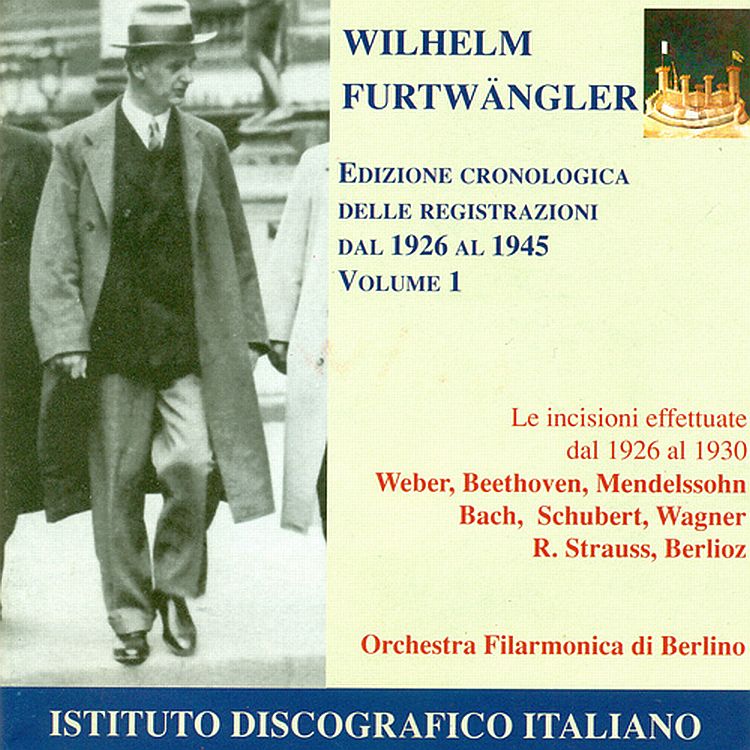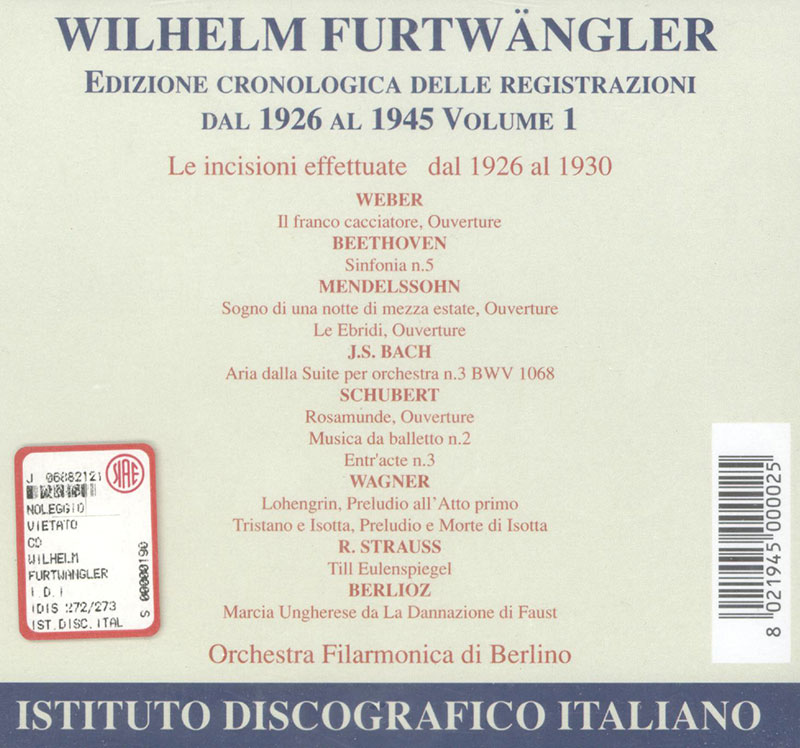Logowanie
Dziś nikt już tak genialnie nie jazzuje!
Bobby Hutcherson, Joe Sample
San Francisco
SHM-CD/SACD - NOWY FORMAT - DŻWIĘK TAK CZYSTY, JAK Z CZASU WIELKIEGO WYBUCHU!
Wayne Shorter, Freddie Hubbard, Herbie Hancock, Ron Carter, Elvin Jones
Speak no evil
UHQCD - dotknij Oryginału - MQA (Master Quality Authenticated)
Chesky! Niezmiennie perfekcyjny
Winylowy niezbędnik
ClearAudio
Double Matrix Professional - Sonic
najbardziej inteligentna i skuteczna pralka do płyt winylowych wszelkiego typu - całkowicie automatyczna
WEBER, BEETHOVEN, MENDELSSOHN, BACH, SCHUBERT, Berliner Philharmoniker, Wilhelm Furtwangler
Chronological edition of the Recordings from 1926 to 1945, Vol.1 (1926 to 1930)

- Beethoven: Sinfonia No. 5
- Wagner: Overtures & Preludi
- R.Strauss: Till Eulenspiegel, ecc.
- Berliner Philharmoniker - orchestra
- Wilhelm Furtwangler - conductor
- WEBER
- BEETHOVEN
- MENDELSSOHN
- BACH
- SCHUBERT
"Wilhelm Furtwängler (January 25, 1886 – November 30, 1954) was a German conductor and composer. He is widely considered to have been one of the greatest symphonic and operatic conductors of the 20th century. During the 1920s and 1930s, Furtwängler became one of the leading conductors in Europe, as principal conductor of the Berlin Philharmonic from 1922, as principal conductor of the Gewandhaus Orchestra from 1922–26, and as a major guest conductor of other leading orchestras such as the Vienna Philharmonic. He was the leading conductor who remained in Germany during the Second World War, and although not an adherent to the Nazi regime this decision caused controversy for the rest of his life. The extent to which his presence lent prestige to the Third Reich is still debated. Furtwängler's interpretive art is well documented in commercial and off-air recordings and this has led to him being revered by a large number of musicians, critics and record collectors since his death. Furtwängler's conducting style is often contrasted to that of his older contemporary Arturo Toscanini, whose work during this period was also widely documented. Like Toscanini, Furtwängler was a major influence on many later conductors, and his name is often mentioned when discussing their interpretive style. Unlike Toscanini, Furtwängler sought a weighty, less rhythmically strict, more bass-oriented orchestral sound with more conspicuous use of tempo inflections not indicated in the printed score."


































